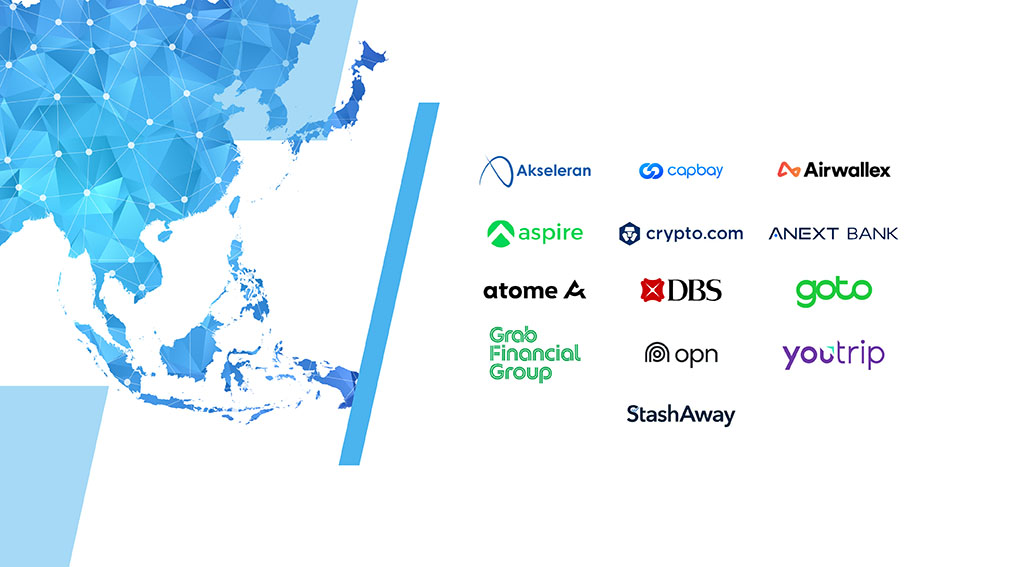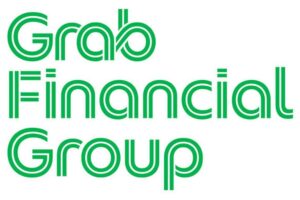Fintech
13 Southeast Asian Fintechs Among CNBC’s Global Top 250 List

Free Newsletter
Get the hottest Fintech Singapore News once a month in your Inbox
13 fintech companies from Southeast Asia have been named among this year’s top 250 fintech companies worldwide, recognized for their growth and significant impact on the global fintech landscape.
These companies are featured on the World’s Top Fintech Companies 2024. The list, produced by CNBC in collaboration with market research firm Statista, highlights the world’s top 250 fintech companies across eight market categories: payments, wealthtech, business process solutions, neobanking, alternative finance, financial planning, digital assets and banking solutions.
These companies are considered leaders in their respective market and were selected based on an analysis of key performance indicators using publicly available data from sources including annual reports, company websites, and media monitoring, as well as information received via the application process.
Of the 13 Southeast Asian companies that made it into this year’s list, six are returning honorees from 2023. These companies are CapBay, Airwallex, Aspire, GoTo Group, Grab Financial Group and StashAway. The remaining seven are newcomers: Akseleran, Crypto.com, ANEXT Bank, Atome Financial, DBS Bank, Opn and YouTrip.
Today, we take a closer look at the top fintech firms in Southeast Asia according to CNBC, looking at the products and services they offer and delving into their latest achievements.
CNBC’s Pick of Top Fintech Firms in Southeast Asia
Akseleran (Indonesia)

Founded in 2017, Akseleran is an Indonesian peer-to-peer (P2P) lending platform is among the top fintech firms in Southeast included CNBC’s list.
The company provides flexible capital access to small and medium-sized enterprises (SMEs) with competitive interest rates and flexible options in loan tenors, payment models, and collateral participation.
Akseleran connects small businesses in need of loans with groups of diverse lenders to secure necessary funding. The platform provides various flexibilities to SMEs, including the option to use different types of collateral, flexible principal payment schedules, and variable payment terms ranging from one to twelve months. For lenders, Akseleran promises attractive returns, with investments starting from IDR 100,000 (US$6).
By the end of 2022, Akseleran had disbursed almost IDR 6.6 trillion (US$407 million) in loans and booked IDR 71.5 billion (US$4.4 million) in revenue, an 80% increase over the previous year. The company served more than 206,000 individuals and collaborated with major banks, including BCA, BRI, Bank Mandiri and OCBC NISP.
CapBay (Malaysia)

CapBay is an award-winning supply chain finance and P2P financing platform established in 2016. The company facilitates inclusive business financing using existing trade data and relationships.
Among CNBC’s top fintech selected from Southeast Asia, Capbay is the only company from Malaysia.
Through its proprietary credit-decisioning model, CapBay enables businesses of all sizes to obtain short-term financing, while banks and investors can participate in high-quality financing deals. The company utilizes data analytics and machine learning (ML) algorithms to conduct comprehensive credit assessments of SMEs, considering financial metrics, transactional dynamics, performance monitoring, and industry risks.
This approach has enabled CapBay to provide over MYR 3 billion (US$643 million) in financing to more than 1,700 underserved SMEs across 20 diverse industries.
It has also enhanced the efficiency of its operations, allowing CapBay to offer financing solutions with ticket sizes as low as MYR 100 (US$21). Investors, meanwhile, can participate in private credit through CapBay’s P2P financing platform, which is licensed by the Securities Commission Malaysia.
Airwallex (Singapore)

Founded in 2015 in Australia, Airwallex is a leading global financial platform for modern businesses, offering solutions to manage everything from payments, treasury, and spend management to embedded finance. With its proprietary infrastructure, Airwallex takes the friction out of global payments and financial operations, empowering businesses of all sizes to unlock new opportunities and grow beyond borders.
Airwallex supports over 100,000 businesses globally and is trusted by brands such as Brex, Rippling, Navan, Qantas, SHEIN and many more. In 2023, the company processed over 50 million transactions and achieved annual volume close to US$80 billion.
Airwallex has raised a total of US$902 million, achieving a valuation of US$5.5 billion by late 2022. The company plans to go public by 2026, and to expand its infrastructure to new regions, including Japan, Malaysia, Vietnam, Indonesia, Mexico, Brazil, and the Middle East. It aims to establish itself as the complete financial operating system for global businesses, offering a comprehensive spend management suite and subscription-based pricing.
Aspire (Singapore)

Headquartered in Singapore, Aspire is the all-in-one finance platform for modern businesses, helping over 15,000 companies across Asia save time and money with international payments, expense management, payable management, and receivable management solutions, all through one account.
Aspire’s platform has quickly gained popularity in Southeast Asia, tripling its annualized total payment volumes in 2023 to US$12 billion. Its client base includes notable companies such as Air Asia, Carousell, Love Bonito, Endowus, and Tech In Asia.
Founded in 2018, Aspire has raised more than US$300 million from world-class investors, included Sequoia, Lightspeed, Y-Combinator, Tencent and Paypal. In February 2023, the startup closed an oversubscribed US$100 million Series C round and announced that it had achieved profitability. It said it would use the proceeds to enhance its product offering further and expand its regional presence, while increasing its team to continue to innovate in the space.
In May 2024, Aspire launched in Hong Kong, offering a suite of financial solutions to SMEs, including the ability to open local business accounts for payables and receivables management, international payments, as well as payment gateway solution.
Crypto.com (Singapore)

Founded in 2016 and headquartered in Singapore, Crypto.com is a leading cryptocurrency platform. The company offers a wide range of financial services, including an app, exchange, non-custodial decentralized finance (DeFi) wallet, non-fungible token (NFT) marketplace, and direct payment service in cryptocurrency, serving more than 100 million customers worldwide.
The Crypto.com platform allows users to buy, sell, trade and store cryptocurrencies. The platform supports DeFi apps, providing users with opportunities to earn interest on their crypto holdings through staking and yield farming. It also comes a payment card which allows users to spend their crypto directly in fiat currency.
Another notable feature is Crypto Earn, which lets users earn interest on their crypto deposits by locking them for a specified period. For those needing liquidity, Crypto.com provides Crypto Credit, allowing users to borrow against their cryptocurrency holdings without the need to sell them.
Known for its industry-leading standards in regulatory compliance, security, and privacy, Crypto.com continues to expand its global reach and regulatory approvals. In June 2024, the startup received approval as a virtual asset service provider from the Central Bank of Ireland, adding to its growing list of licenses and approvals in Singapore, France, Dubai, the UK, South Korea, Australia, Spain, Italy, Greece, Cyprus, the Cayman Islands, the US, and Canada, among other locations.
ANEXT Bank (Singapore)

ANEXT Bank is a digital wholesale bank in Singapore and a wholly-owned subsidiary of Chinese fintech giant Ant International.
The company offers innovative digital financial services aimed at empowering local and regional micro, small, and medium enterprises (MSMEs). These products and services include the ANEXT Business Account, ANEXT Business Loan, ANEXT Fixed Deposit, ANEXT Programme for Industry Specialists, as well as the SME Friends of ANEXT, an initiative for the bank to deepen engagement with the SME community to shape the digital bank of tomorrow together.
ANEXT Bank reported in June 2024 notable growth, with its total customer base growing more than two-fold over the past year.
The bank facilitated a six-fold year-on-year (YoY) increase in cross-border transactions, particularly among MSMEs in the wholesale and retail trade, professional services, and information, communication, and technology sectors.
ANEXT Bank has raised US$502.61 million in funding, making it the third most well-funded fintech company in Singapore. The sum comprises a US$188 million and a US$148 million capital boost from its parent company in March 2023 and March 2024, respectively.
Atome Financial (Singapore)

Founded in 2019, Atome Financial is a digital financial services platform. The startup started out with buy now, pay later (BNPL) and embedded financing services before expanding to insurance, cards, and loans across various markets.
The platform leverages the company’s expertise in risk-managed credit and responsible financing to enhance digital and financial inclusion through technology.
Atome Financial reported remarkable performance for fiscal year 2023 with operating income nearly doubling to US$170 million from the previous year.
A key success factor was the profitability of its BNPL business, driven by a 40% YoY surge in gross merchandise value (GMV) to US$1.5 billion and 130% YoY growth in revenue. The positive momentum carried into fiscal year 2024, with Atome Financial announcing in April that it had turned profitable in Q1 2024.
Atome is part of Singapore-headquartered Advance Intelligence Group, an artificial intelligence (AI)-driven technology company that consists of an ecosystem of AI-powered, credit-enabled products and services that includes consumer financing, digital identity verification and risk management, as well as enterprise resource planning software.
DBS Bank (Singapore)

Headquartered and listed in Singapore, DBS Bank is a leading financial services group in Asia with a presence in 19 markets. The bank operates in the key growth regions of Greater China, Southeast Asia, and South Asia.
Within CNBC’s list of selected top fintech firms, DBS is the only bank in the list.
DBS Bank offers a comprehensive range of services in consumer, SME, and corporate banking. Beyond traditional banking, the bank is committed to social and environmental impact through the DBS Foundation.
The foundation supports businesses that aim for both profit and positive social or environmental outcomes. It also invests in community initiatives, equipping underserved communities with future-ready skills and promoting food resilience.
DBS Bank has garnered international recognition for its leadership and innovation. The bank has been awarded the title of “World’s Best Bank” by both Global Finance and Euromoney, “Global Bank of the Year” by The Banker, “World’s Best Digital Bank” by Euromoney and the world’s “Most Innovative in Digital Banking” by The Banker. Additionally, DBS Bank had honored as the “Safest Bank in Asia” by Global Finance for 15 consecutive years from 2009 to 2023.
GoTo Group (Indonesia)

The GoTo Group is the largest digital ecosystem in Indonesia, aiming to “empower progress” by offering technology infrastructure and solutions that help everyone to access and thrive in the digital economy. The GoTo ecosystem provides a wide range of services including mobility, food delivery, groceries and logistics, as well as payments, financial services, and technology solutions for merchants. The ecosystem also provides e-commerce services through Tokopedia and banking services through its partnership with Bank Jago.
Founded in 2021 as a merger company between Gojek and Tokopedia, two of Indonesia’s biggest Internet companies at that time, the GoTo Group claimed 50.8 million transacting users in 2023. The group reported a gross transaction value (GTV) of IDR 116.5 trillion (US$7.2 billion) in Q1 2024, representing a 20% YoY increase. Group core GTV, which excludes merchant payment gateway, grew by 32% YoY to IDR 54.6 trillion (US$3.4 billion), while gross revenues grew by 18% YoY to IDR 4.2 trillion (US$259 million).
In July 2024, the GoTo Group launched GoTo AI, a long-term program aimed at developing and integrating AI technologies across the GoTo ecosystem. The GoTo AI roadmap focuses on three main areas: enhancing user experience, strengthening safety across platforms, and building AI capacity and capability within the company.
Grab Financial Group (Singapore)

Grab Financial Group offers a range of payment, lending, and insurance services designed to help users unlock better lives by making financial services more accessible and affordable.
The company’s platform integrates these services into a single entry point on the Grab app, catering to consumers who prefer accessing all their digital financial services on one integrated platform.
Grab Financial Group’s key products and services are GrabPay, a point-of-sale (POS) system for merchants and a mobile wallet for consumers; GrabFinance, a financial empowerment program that provides drivers, merchants and enterprises greater access to a suite of financial services; GrabInsure, which offers simple, convenient, and affordable insurance products tailored to users’ lifestyle needs; and GrabRewards, a loyalty program that allows users to earn points with every Grab transaction and access exclusive benefits.
Grab Financial Group is the financial services unit of Grab, a leading superapp in Southeast Asia, operating across the deliveries, mobility and digital financial services sectors. Serving over 700 cities in eight Southeast Asian countries, Grab enables millions of people everyday to order food or groceries, send packages, hail a ride or taxi, pay for online purchases or access services such as lending and insurance, all through a single app.
Opn (Thailand)

Founded in 2013, Opn is a provider of online payment solutions and digital transformation services. The company’s offerings include a one-stop online payment platform, Opn Payments; Opn Tag, which creates contactless digital touchpoints; embedded financial solutions tailored to the needs of customers; as well as digital wallets utilizing blockchain technology. In addition, Opn offers consulting services through its Opn Pro brand.
Originally established as Omise in Thailand, Opn has since expanded its footprint to encompass Japan, Southeast Asia and the US. The company says its fintech solutions are used by more than 22,000 firms and SMEs around the world, making it one of the leading payment services providers in Asia-Pacific (APAC) and the US.
Opn made several strides in 2023, launching a new development center in Hanoi, Vietnam in February, kicking off a card issuing offering in Thailand in June and integrating Atome into its payment platform for Malaysian and Singaporean customers in July. The company also moved its headquarters to Japan in August.
YouTrip (Singapore)

Launched in 2018, YouTrip is a mobile financial platform based in Singapore which offers a multi-currency mobile wallet and a contactless Mastercard to make payments in over 150 currencies. The platform is designed for travelers and tech-savvy consumers alike.
YouTrip was created with the vision to provide a smarter and more convenient way to handle foreign currency transactions. Today, the platform is a trusted companion for many, claiming to deliver the best foreign exchange (FX) rates with zero transaction fees. It allows users to perform in-app exchanges at any time and spend in any currency, and ensures that FX rates are updated in real-time and displayed transparently on the YouTrip app, with no hidden markups.
YouTrip has experienced significant growth in its consumer multi-currency spending in Singapore and Thailand, with its user base tripling between 2021 and 2023. Additionally, its corporate card and spend management platform, YouBiz, has achieved notable milestones since its launch in May 2022. In its first year, YouBiz onboarded over 3,000 enterprises.
YouTrip closed a US$50 million Series B in October 2023, bringing its total funding raised to over US$100 million. The company said it would use the proceeds to invest in more technologies to deepen product and innovation capabilities, and expand its regional team as it launches in new markets across Southeast Asia.
StashAway (Singapore)

StashAway is a digital wealth manager headquartered in Singapore. The company offers a range of investment portfolios and wealth management solutions tailored for both retail investors and high-net-worth individuals (HNWIs). It operates across Singapore, Malaysia, the Middle East and North Africa (MENA), Hong Kong, and Thailand.
StashAway provides intelligent investment management services that align with individual risk profiles. Additionally, it offers cash management solutions designed to ensure that cash does not remain idle in traditional savings accounts.
The company surpassed US$1 billion in assets under management in 2021 and has received numerous accolades for its achievements and innovation, including a spot in the Fintech Global’s “2021 Wealthtech 100” list and the bronze award for the “SG Techblazer Award” in the “Most Promising Innovation Category”. StashAway also took first place in the category for “Singapore Financial Institution” at the “SFF Global Fintech Awards 2021” presented by the Monetary Authority of Singapore (MAS) and the Singapore Fintech Association (SFA).
Featured image credit: edited from freepik
Fintech
US Agencies Request Information on Bank-Fintech Dealings

Federal banking regulators have issued a statement reminding banks of the potential risks associated with third-party arrangements to provide bank deposit products and services.
The agencies support responsible innovation and banks that engage in these arrangements in a safe and fair manner and in compliance with applicable law. While these arrangements may offer benefits, supervisory experience has identified a number of safety and soundness, compliance, and consumer concerns with the management of these arrangements. The statement details potential risks and provides examples of effective risk management practices for these arrangements. Additionally, the statement reminds banks of existing legal requirements, guidance, and related resources and provides insights that the agencies have gained through their oversight. The statement does not establish new supervisory expectations.
Separately, the agencies requested additional information on a broad range of arrangements between banks and fintechs, including for deposit, payment, and lending products and services. The agencies are seeking input on the nature and implications of arrangements between banks and fintechs and effective risk management practices.
The agencies are considering whether to take additional steps to ensure that banks effectively manage the risks associated with these different types of arrangements.
SUBSCRIBE TO THE NEWSLETTER
And get exclusive articles on the stock markets
Fintech
What changes in financial regulation have impacted the development of financial technology?

Exploring the complex landscape of global financial regulation, we gather insights from leading fintech leaders, including CEOs and finance experts. From the game-changing impact of PSD2 to the significant role of GDPR in data security, explore the four key regulatory changes that have reshaped fintech development, answering the question: “What changes in financial regulation have impacted fintech development?”
- PSD2 revolutionizes access to financial technology
- GDPR Improves Fintech Data Privacy
- Regulatory Sandboxes Drive Fintech Innovation
- GDPR Impacts Fintech Data Security
PSD2 revolutionizes access to financial technology
When it comes to regulatory impact on fintech development, nothing comes close to PSD2. This EU regulation has created a new level playing field for market players of all sizes, from fintech startups to established banks. It has had a ripple effect on other markets around the world, inspiring similar regulatory frameworks and driving global innovation in fintech.
The Payment Services Directive (PSD2), the EU law in force since 2018, has revolutionized the fintech industry by requiring banks to provide third-party payment providers (TPPs) with access to payment services and customer account information via open APIs. This has democratized access to financial data, fostering the development of personalized financial instruments and seamless payment solutions. Advanced security measures such as Strong Customer Authentication (SCA) have increased consumer trust, pushing both fintech companies and traditional banks to innovate and collaborate more effectively, resulting in a dynamic and consumer-friendly financial ecosystem.
The impact of PSD2 has extended beyond the EU, inspiring similar regulations around the world. Countries such as the UK, Australia and Canada have launched their own open banking initiatives, spurred by the benefits seen in the EU. PSD2 has highlighted the benefits of open banking, also prompting US financial institutions and fintech companies to explore similar initiatives voluntarily.
This has led to a global wave of fintech innovation, with financial institutions and fintech companies offering more integrated, personalized and secure services. The EU’s leadership in open banking through PSD2 has set a global standard, promoting regulatory harmonization and fostering an interconnected and innovative global financial ecosystem.
Looking ahead, the EU’s PSD3 proposals and Financial Data Access (FIDA) regulations promise to further advance open banking. PSD3 aims to refine and build on PSD2, with a focus on improving transaction security, fraud prevention, and integration between banks and TPPs. FIDA will expand data sharing beyond payment accounts to include areas such as insurance and investments, paving the way for more comprehensive financial products and services.
These developments are set to further enhance connectivity, efficiency and innovation in financial services, cementing open banking as a key component of the global financial infrastructure.
General Manager, Technology and Product Consultant Fintech, Insurtech, Miquido
GDPR Improves Fintech Data Privacy
Privacy and data protection have been taken to another level by the General Data Protection Regulation (GDPR), forcing fintech companies to tighten their data management. In compliance with the GDPR, organizations must ensure that personal data is processed fairly, transparently, and securely.
This has led to increased innovation in fintech towards technologies such as encryption and anonymization for data protection. GDPR was described as a top priority in the data protection strategies of 92% of US-based companies surveyed by PwC.
Financial Expert, Sterlinx Global
Regulatory Sandboxes Drive Fintech Innovation
Since the UK’s Financial Conduct Authority (FCA) pioneered sandbox regulatory frameworks in 2016 to enable fintech startups to explore new products and services, similar frameworks have been introduced in other countries.
This has reduced the “crippling effect on innovation” caused by a “one size fits all” regulatory approach, which would also require machines to be built to complete regulatory compliance before any testing. Successful applications within sandboxes give regulators the confidence to move forward and address gaps in laws, regulations, or supervisory approaches. This has led to widespread adoption of new technologies and business models and helped channel private sector dynamism, while keeping consumers protected and imposing appropriate regulatory requirements.
Co-founder, UK Linkology
GDPR Impacts Fintech Data Security
A big change in financial regulations that has had a real impact on fintech is the 2018 EU General Data Protection Regulation (GDPR). I have seen how GDPR has pushed us to focus more on user privacy and data security.
GDPR means we have to handle personal data much more carefully. At Leverage, we have had to step up our game to meet these new rules. We have improved our data encryption and started doing regular security audits. It was a little tricky at first, but it has made our systems much more secure.
For example, we’ve added features that give users more control over their data, like simple consent tools and clear privacy notices. These changes have helped us comply with GDPR and made our customers feel more confident in how we handle their information.
I believe that GDPR has made fintech companies, including us at Leverage, more transparent and secure. It has helped build trust with our users, showing them that we take data protection seriously.
CEO & Co-Founder, Leverage Planning
Related Articles
Fintech
M2P Fintech About to Raise $80M

Application Programming Interface (API) Infrastructure Platform M2P Financial Technology has reached the final round to raise $80 million, at a valuation of $900 million.
Specifically, M2P Fintech, formerly known as Yap, is closing a new funding round involving new and existing investors, according to entrackr.com. The India-based company, which last raised funding two and a half years ago, previously secured $56 million in a round led by Insight Partners, earning a post-money valuation of $650 million.
A source indicated that M2P Fintech is ready to raise $80 million in this new funding round, led by a new investor. Existing backers, including Insight Partners, are also expected to participate. The new funding is expected to go toward enhancing the company’s technology infrastructure and driving growth in domestic and international markets.
What does M2P Fintech do?
M2P Fintech’s API platform enables businesses to provide branded financial services through partnerships with fintech companies while maintaining regulatory compliance. In addition to its operations in India, the company is active in Nepal, UAE, Australia, New Zealand, Philippines, Bahrain, Egypt, and many other countries.
Another source revealed that M2P Fintech’s valuation in this funding round is expected to be between USD 880 million and USD 900 million (post-money). The company has reportedly received a term sheet and the deal is expected to be publicly announced soon. The Tiger Global-backed company has acquired six companies to date, including Goals101, Syntizen, and BSG ITSOFT, to enhance its service offerings.
According to TheKredible, Beenext is the company’s largest shareholder with over 13% ownership, while the co-founders collectively own 34% of the company. Although M2P Fintech has yet to release its FY24 financials, it has reported a significant increase in operating revenue. However, this growth has also been accompanied by a substantial increase in losses.
Fintech
Scottish financial technology firm Aveni secures £11m to expand AI offering

By Gloria Methri
Today
- To come
- Aveni Assistance
- Aveni Detection
Artificial intelligence Financial Technology Aveni has announced one of the largest Series A investments in a Scottish company this year, amounting to £11 million. The investment is led by Puma Private Equity with participation from Par Equity, Lloyds Banking Group and Nationwide.
Aveni combines AI expertise with extensive financial services experience to create large language models (LLMs) and AI products designed specifically for the financial services industry. It is trusted by some of the UK’s leading financial services firms. It has seen significant business growth over the past two years through its conformity and productivity solutions, Aveni Detect and Aveni Assist.
This investment will enable Aveni to build on the success of its existing products, further consolidate its presence in the sector and introduce advanced technologies through FinLLM, a large-scale language model specifically for financial services.
FinLLM is being developed in partnership with new investors Lloyds Banking Group and Nationwide. It is a large, industry-aligned language model that aims to set the standard for transparent, responsible and ethical adoption of generative AI in UK financial services.
Following the investment, the team developing the FinLLM will be based at the Edinburgh Futures Institute, in a state-of-the-art facility.
Joseph Twigg, CEO of Aveniexplained, “The financial services industry doesn’t need AI models that can quote Shakespeare; it needs AI models that deliver transparency, trust, and most importantly, fairness. The way to achieve this is to develop small, highly tuned language models, trained on financial services data, and reviewed by financial services experts for specific financial services use cases. Generative AI is the most significant technological evolution of our generation, and we are in the early stages of adoption. This represents a significant opportunity for Aveni and our partners. The goal with FinLLM is to set a new standard for the controlled, responsible, and ethical adoption of generative AI, outperforming all other generic models in our select financial services use cases.”
Previous Article
Network International and Biz2X Sign Partnership for SME Financing
IBSi Daily News Analysis

SMBs Leverage Cloud to Gain Competitive Advantage, Study Shows
IBSi FinTech Magazine

- The Most Trusted FinTech Magazine Since 1991
- Digital monthly issue
- Over 60 pages of research, analysis, interviews, opinions and rankings
- Global coverage
subscribe now
-

 DeFi12 months ago
DeFi12 months agoDeFi Technologies Appoints Andrew Forson to Board of Directors
-

 Fintech12 months ago
Fintech12 months agoUS Agencies Request Information on Bank-Fintech Dealings
-

 News1 year ago
News1 year agoBlock Investors Need More to Assess Crypto Unit’s Earnings Potential, Analysts Say — TradingView News
-

 DeFi12 months ago
DeFi12 months agoSwitchboard Revolutionizes DeFi with New Oracle Aggregator
-

 DeFi12 months ago
DeFi12 months agoIs Zypto Wallet a Reliable Choice for DeFi Users?
-

 News1 year ago
News1 year agoBitcoin and Technology Correlation Collapses Due to Excess Supply
-

 Fintech12 months ago
Fintech12 months agoWhat changes in financial regulation have impacted the development of financial technology?
-

 Fintech12 months ago
Fintech12 months agoScottish financial technology firm Aveni secures £11m to expand AI offering
-

 Fintech12 months ago
Fintech12 months agoScottish financial technology firm Aveni raises £11m to develop custom AI model for financial services
-

 News1 year ago
News1 year agoValueZone launches new tools to maximize earnings during the ongoing crypto summer
-

 DeFi1 year ago
DeFi1 year agoTON Network Surpasses $200M TVL, Boosted by Open League and DeFi Growth ⋆ ZyCrypto
-

 Videos6 months ago
Videos6 months ago“Artificial intelligence is bringing us to a future that we may not survive” – Sco to Whitney Webb’s Waorting!






